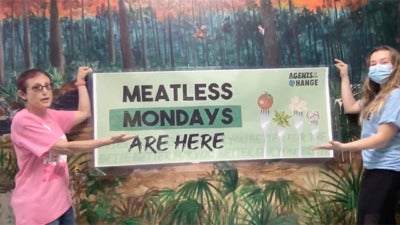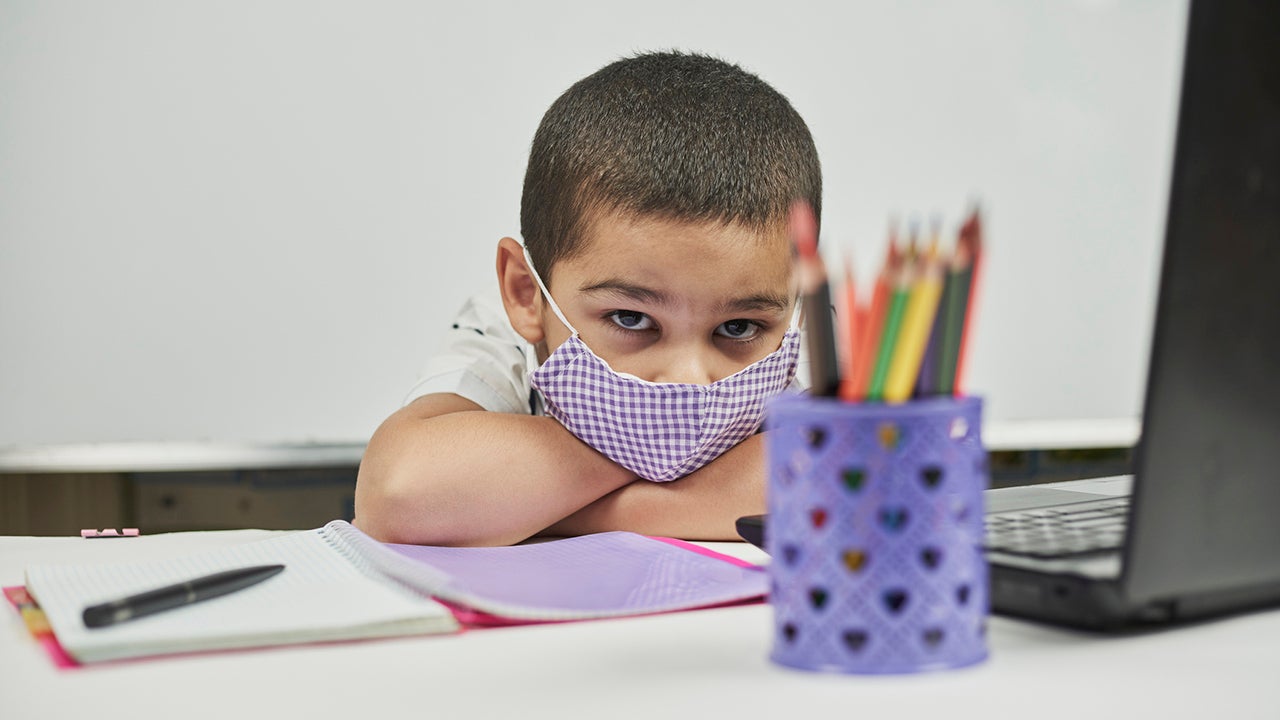Analysse Humaran and Gianna Hutton are 11th graders representing Miami Palmetto Senior High School in this year’s Aspen Challenge. Living in Miami, the climate crisis is already at their doorstep. Analysse and Gianna want locals, especially youth, to understand climate science and connect the dots of the events occurring in their community. They believe they need to be agents of change as they are part of the generation that this crisis will affect most. Analysse and Gianna are passionate advocates for climate literacy—and believe in giving people the tools to spread the word and make better personal choices. We caught up with them to learn how they’re leading the fight.
What’s your approach to addressing climate change?
Our initiative is twofold. We are increasing climate literacy through a student-led podcast named Let’s Speak Green and peer-to-peer conversations in conjunction with the Climate Leadership Information Project of The CLEO Institute. We are also giving students a venue to take action to reduce our food-related carbon emissions through composting and Meatless Mondays.
In the United States, more than 40% of our food production is wasted. When sent to landfills, it decomposes without oxygen, resulting in the release of methane, a greenhouse gas with 25 times the global warming potential of carbon dioxide. By composting, we are mitigating the release of this greenhouse gas while also producing an organic fertilizer that can be used to make more food.
 On top of that, our industrial animal agriculture industry is the second largest contributor to human-made greenhouse gas emissions after fossil fuels, and the leading cause of deforestation—cutting down our carbon sinks—as well as water and air pollution. That’s why we created our plant-based cookbook and Meatless Mondays initiative, urging the creation of more plant-based options in schools, and individually cutting out meat products on Mondays.
On top of that, our industrial animal agriculture industry is the second largest contributor to human-made greenhouse gas emissions after fossil fuels, and the leading cause of deforestation—cutting down our carbon sinks—as well as water and air pollution. That’s why we created our plant-based cookbook and Meatless Mondays initiative, urging the creation of more plant-based options in schools, and individually cutting out meat products on Mondays.
How is climate change affecting your community?
We are Latinx women. The climate crisis by nature is intertwined with racial and gender inequities, with BIPOC communities calling for environmental justice for generations. In Miami, the climate crisis not only will result in environmental repercussions but create a climate justice issue. For example, with sea-level rise, desalination is required when saltwater intrusion occurs, increasing freshwater prices. On top of that, inland communities here are lower-income diverse areas, so when sea-level rise pushes people to move farther from the water it has a gentrifying effect. Another example is affordable housing—the Department of Housing and Urban Development does not require air conditioning in affordable housing, and with extreme heat marginalized communities will need to pay high utility bills.
What is one thing you wish every person was doing about climate change?
One of the best things you can do is learn about the issue and spread it to your loved ones. Having this information can catalyze individual habits—such as cutting out meat for one day or composting—but also launch a person to be engaged in local advocacy and find solutions for issues they see. Hearing about climate change in the media does not compare to having a loved one explaining the issue and saying why it matters.
Being climate literate does not need to mean you are paralyzed in fear about our future. Instead, having an understanding of this issue opens up venues in which you can catalyze action and build a more resilient community. It’s important to understand the issue to see where you can play a part in the solution.
What do you think your role will be in twenty years, and where do you think the world will be in 20 years?
Our intentions are to be agents of change. We envision such change to be a developed standard of climate literacy for youth across south Florida. Schools will embrace Meatless Mondays and regularly compost their food waste. This hands-on outlet will instill in students the normalcy of sustainable habits and teach them to be conscious of their carbon footprint. Furthermore, we hope that because of our efforts climate education can be regularly integrated into classroom conversation so a diverse and vast group of youth may understand their hand in shaping the future of the environment and the world. Because of these changes, the world in 20 years will be equipped with a generation knowledgeable and armed with the tools to fight the climate crisis.


